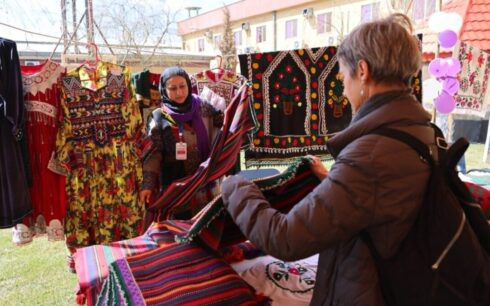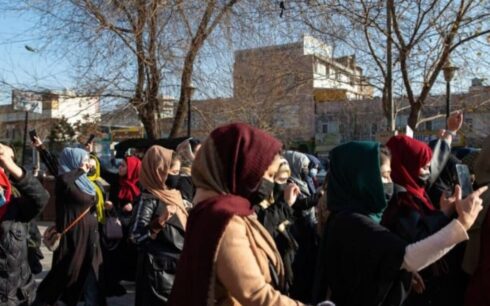KABUL, Afghanistan — A new survey by the United Nations Assistance Mission in Afghanistan (UNAMA), alongside U.N. Women and the International Organization for Migration, warns that the Taliban’s “Promotion of Virtue and Prevention of Vice” law empowers officials to apply repressive measures that extend beyond targeting women, creating a mechanism for broader social control.
The study, which spanned from August 2022 to July 2023, also highlights a notable decline in public support for women’s and girls’ education, along with significant economic setbacks for women. Restrictions on women’s access to justice have also deepened under Taliban rule.
Participants in the study urged the international community to increase pressure on the Taliban to lift these restrictions, emphasizing the urgent need for protections to be restored.
Although the report focuses on conditions prior to the law’s implementation, it points to the law as a potential “vehicle for arbitrary and severe enforcement.” The law, enacted by Taliban leader Hibatullah Akhundzada, includes measures that classify women’s voices as “inappropriate for public spaces” and prohibit women from showing their faces in public.
The study, based on consultations with 776 women and 57 men across 11 provinces, found that community support for girls’ education has significantly diminished. Some key findings include:
Education: Forty-seven percent of women surveyed reported diminished public support for girls’ primary education, and 65 percent reported similar declines for secondary education. Many girls, now barred from schooling, are losing hope, leading to increased rates of early marriage as educational opportunities disappear. Some families have resorted to enrolling daughters in religious schools as an alternative to formal education.
Economic Impact: Financial strain on women has worsened, with 57 percent of women surveyed reporting substantial financial setbacks. Additionally, 73 percent of women and 55 percent of men observed a decline in job opportunities. Men are increasingly hired in sectors previously staffed by women, such as education, health, and public services, leaving women in economic precarity and facing mental health challenges.
The report further reveals that women are facing what it calls “confinement within their homes,” noting that the law has fostered a culture that treats women as second-class citizens:
Mobility and Public Access: Women’s freedom to move and participate in public life has been drastically limited. Seventy-nine percent of women said they are barred from public parks, while many reported feeling unsafe when venturing outside.
Psychological and Social Impact: Women report heightened family violence and psychological challenges due to the restrictions. Sixty-nine percent of women expressed concerns about personal safety outside the home, compared to 19 percent of men.
The report also highlights significant barriers to justice for women, with 79 percent saying they lack access to formal dispute resolution services.
Participants in the study called on the international community to take a stronger stance, urging actions to:
Restore Educational Access for girls.
Remove Economic Barriers that limit women’s financial empowerment.
Ensure Women’s Access to public services, legal justice, and safe public spaces.
Increase Pressure on the Taliban to roll back these restrictions.
Several Afghan citizens echoed these appeals, urging the international community to prioritize Afghanistan’s human rights crisis. “Our plea to the world is to pressure the Taliban to reopen schools and universities for us,” said a Kabul resident, who requested anonymity. “Restrictions are increasing by the day, and they must be lifted.”
Despite Taliban claims that all citizens’ rights are respected, human rights activists argue that the new law represents a clear escalation in Afghanistan’s human rights crisis.





